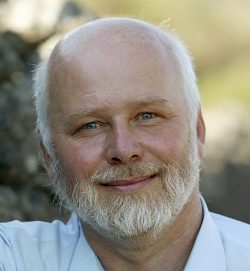Look at these transcripts from two different IELTS exams. Which candidate will get the better mark – candidate A or B? In both cases they are answering the same question: ‘Is your town or village a good place to live?’
Candidate A: Yes, I think so. We have some good facilities, a nice park and a football stadium. There are shops and schools. But there are too many cars on the roads.
Candidate B: Well, I have never lived in a different place so I’m used to my town – but yes, I like it. We have a good stadium, a park, a nice university as well as shops and schools. But if I could change one thing, I would: there is too much traffic.
That was an easy question, I think. Obviously candidate B will get a better mark for grammatical range, because the grammar is much more varied. The question was the same – and it is a question about the present. Candidate A answers well, but only uses the present (we have; there are). Candidate B on the other hand uses many more forms. You can see the present (I like it, I am used to it, there is too much), the present perfect (I have never lived) as well as a second conditional (I would change, if I could).
You can often add present perfect, conditional and even future sentences to questions about the present. How? The present is a result of the past, so you can use the present perfect:
I have never lived in a different place. The present could be different, so you can use a conditional: if I could change one thing, I would. The present could even change in the future, so you could use a future form. Candidate B could have said ‘Many people are coming to live in new houses in my village, so I think life will change.’
Let’s see how you can do the with two other typical questions.
Question: What special occasions do people celebrate in your country?
Simple answer: The special feast to celebrate the end of Ramadan. We call it Eid al-Fitr.
Present perfect: My favourite occasion has always been the special feast to celebrate the end of Ramadan. We call it Eid al-Fitr.
Future version: I’m looking forward to our next celebration of Eid-al- Fitr, which will be in six months.
Conditional version: If I could celebrate the feast with all of my family, I would really like to.
Question: Do you enjoy your work / study?
Simple answer: Yes, I do.
Present perfect: I’ve been doing it for two years, and I have never enjoyed anything as much.
Future version: But this time next year I hope I’ll be doing something different. I want to…
Conditional version: I wouldn’t do it if I didn’t enjoy it.
Next time you practice your IELTS speaking tasks, think about this!


